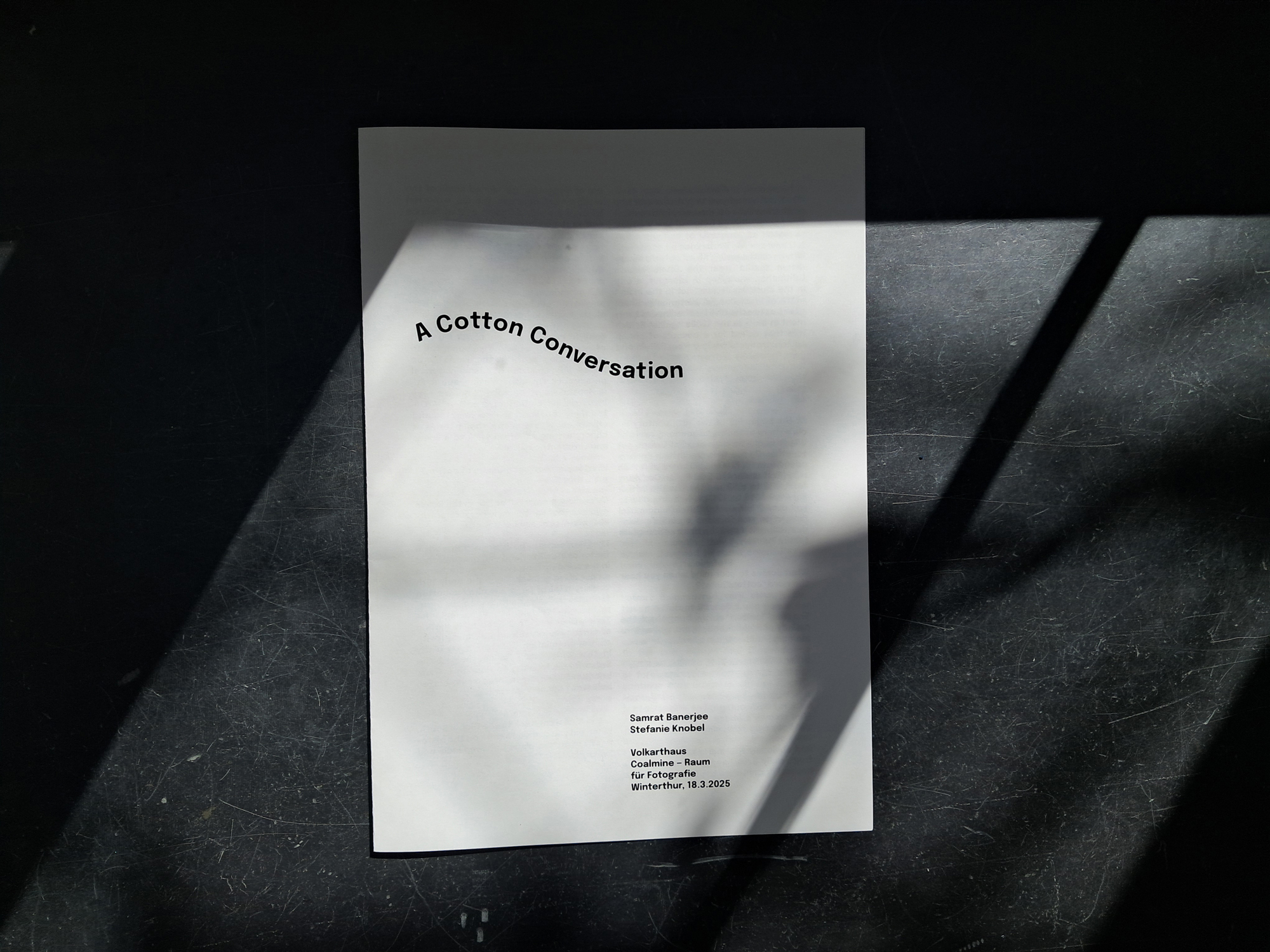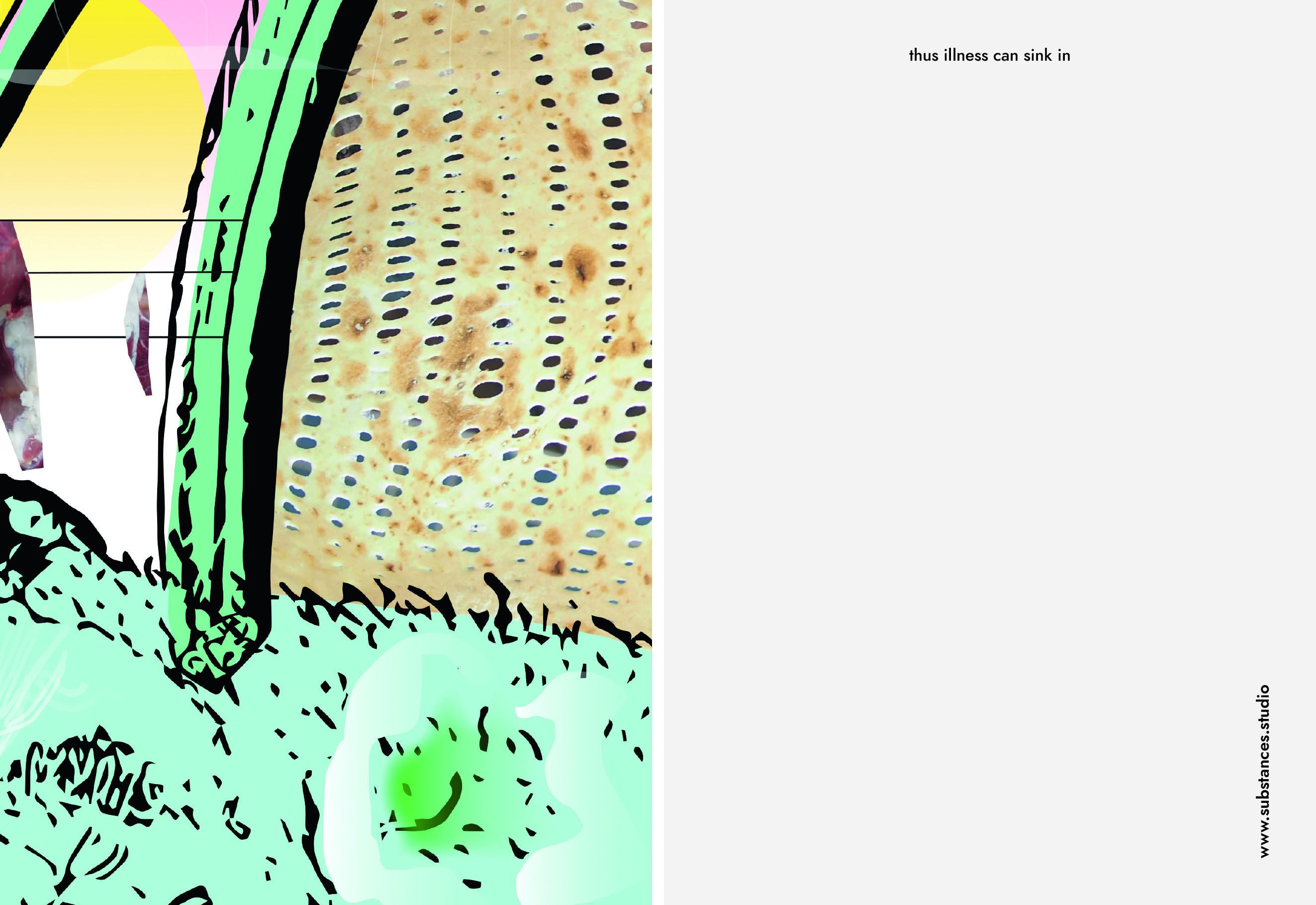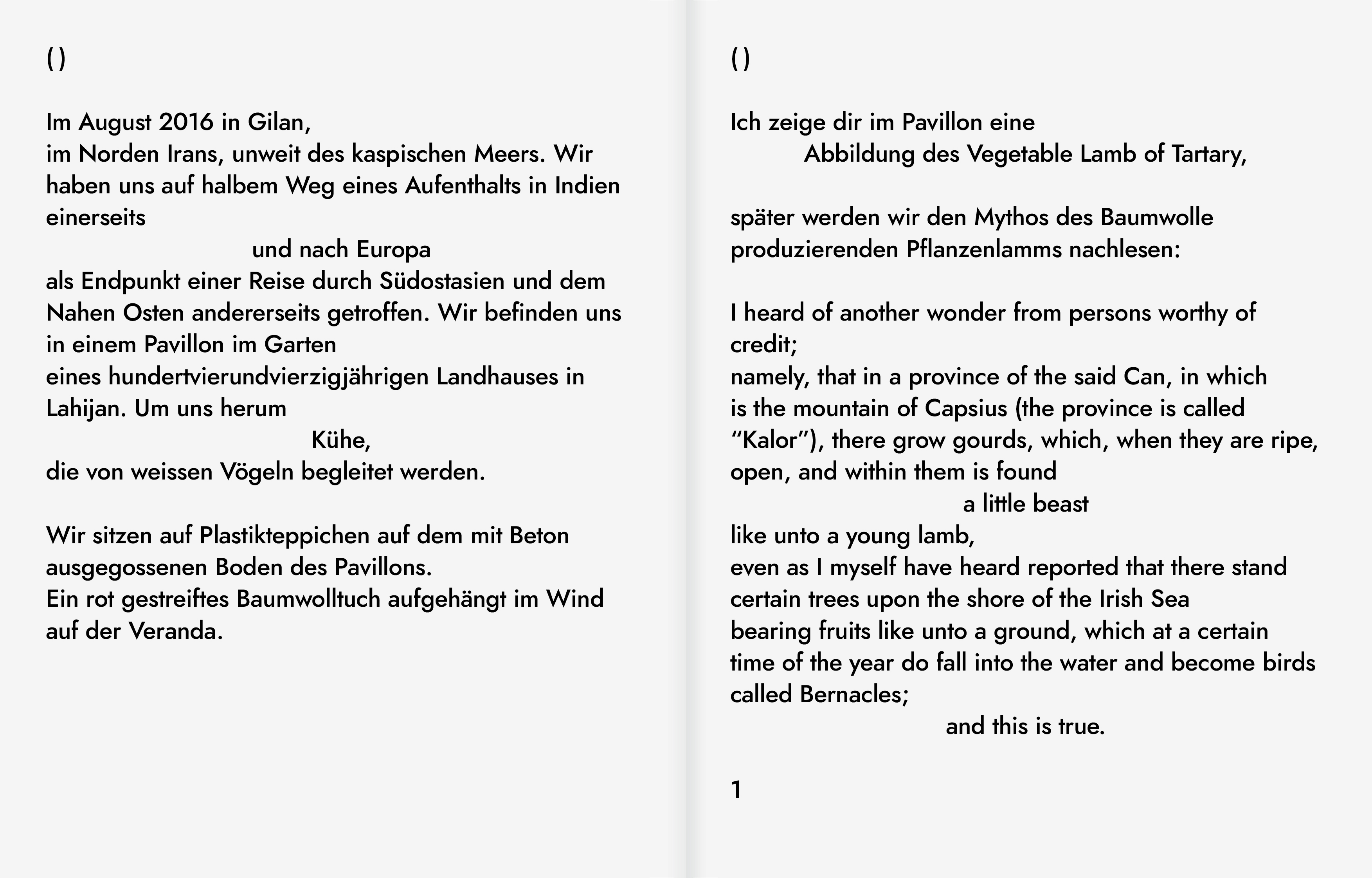Substances works towards publishing material connected to the featured artworks. The following publications are currently available.
A Cotton Conversation
Publication
By Stefanie Knobel and Samrat Banerjee
By Stefanie Knobel and Samrat Banerjee
In A Cotton Conversation, Stefanie Knobel and Samrat Banerjee talk about the economic and cultural significance of cotton from their respective perspectives and experiences. They also question the extent to which Swiss trading companies were able to profit from the global colonial economic order of the time and how colonial narratives continue to have an impact today, in India and in Switzerland. The publication is avilabe on request.

A heavy, heavy duty – where the cotton lies
Set of postcards
By Stefanie Knobel and Angela Wittwer
By Stefanie Knobel and Angela Wittwer
Cotton first became widespread in Europe in the 11th century. Until the 17th century, inspired by descriptions from Europeans who had traveled abroad ideas circulated about the Lamb of Tartary (or Barometz), a hybrid creature part animal and part plant that supposedly produced cotton. These ideas may have been an attempt to transfer the origin of wool – which is known to come from animals – to that of cotton, imagining it as similarly derived from animals.
The postcards of the 12-piece postcard set form a science fiction landscape on the decaying bodies of two “cotton lambs” and feature visualizations from fantastical tale of A heavy, heavy duty. On the reverse is a quote from the work. The postcard set is available for CHF 25.

A heavy, heavy duty – where the cotton lies
Booklet
By Stefanie Knobel and Angela Wittwer
By Stefanie Knobel and Angela Wittwer
In diary-like form, the publication brings together “fragments and individual red threads from global-historical contexts of the cotton trade, spinning, weaving and planting, of synthetic materials and chemical substances, pharmaceuticals and logistics, of diverse side effects yesterday and today, of twisted physicalities, collaborative practices, and non-human agencies” (Ines Kleesattel). Stories are sewn together translocally or tell of their entanglement in global contexts: they deal with the cotton producing lamb of Tartary (originating in Northern Iran), with agricultural workers in Nagpur and weavers in Shantipur and Lodikheda, India, with a textile producer and trader with business connections to Switzerland in Jakarta, Indonesia, with disused textile factories in the Zurich Oberland, with the violent history of homework, and with the first industrial spinning machine “Spinning Jenny”. The booklet is available as a limited edition (German or English).
